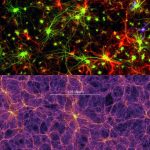Key Takeaways:
- A provocative theory suggests that past, present, and future coexist simultaneously, challenging our conventional perception of time.
- This theory envisions the universe as a four-dimensional spacetime block, containing all events, past, present, and future, without a distinct “now.”
- In the block universe, the present is relative to our position within this block, with the past and future merely existing at different locations.
- The theory proposes that time travel might be possible through approaches like wormholes, but altering the past wouldn’t change the present.
- It’s suggested that time travelers may have already influenced the past, making it what it is today.
- Critics argue that the future cannot yet exist. Some propose an evolving block universe where time progresses, offering a compromise.
- While debated, the block universe theory aims to reconcile cosmological views of time with our everyday experience, emphasizing that time is more complex than it seems.
Our perception of time usually unfolds in a single direction, relentlessly pushing us from one moment to the next, from our past to an uncertain future. But what if this conventional view is an illusion? What if past, present, and future are already woven together in an intricate tapestry of existence?
Enter the Block Universe Theory, a concept that challenges the very essence of time itself. Dr. Kristie Miller, the joint director for the Centre for Time at the University of Sydney, explains that this theory envisions the universe as a colossal four-dimensional block of spacetime, encapsulating every event that has ever occurred or will occur.
Within this block universe, there is no distinct “now” or present moment. Instead, all moments coexist, interconnected across three spatial dimensions and one time dimension. Your sense of the present is merely a reflection of your position within this cosmic block. The past is a segment of the universe at an earlier location, while the future lies at a later point.
So, does this mean time is a clever mental construct? And could time travel be more than science fiction? Dr. Miller suggests that, hypothetically, time travel might be feasible if we could travel at a significant fraction of the speed of light or utilize wormholes as shortcuts through spacetime.
However, if you were to journey into the past, you couldn’t change it. Your actions in the past were always part of the timeline, avoiding the infamous “grandfather paradox.” In essence, the past has already been shaped by time travelers, potentially explaining why it is as it is.
Furthermore, the theory proposes that our actions today contribute to the future’s shape, making time less a fundamental property of nature and more of an illusion.
Of course, not everyone is on board with the Block Universe Theory. Some, like physicist Lee Smolin, argue that the future cannot yet exist, emphasizing the process by which future events evolve from present ones. To address this, the “evolving block universe” model suggests that the universe’s spacetime block grows, with the surface representing the present moment and the future continually shifting from indefiniteness to definiteness.
While debates over this theory will persist, it offers a promising path to reconcile our understanding of cosmological time with our everyday experiences. What is certain is that time, in its true nature, is far more complex than meets the eye. Exploring its mysteries holds the key to comprehending the essence of the human experience.
Read full article on Big Think


